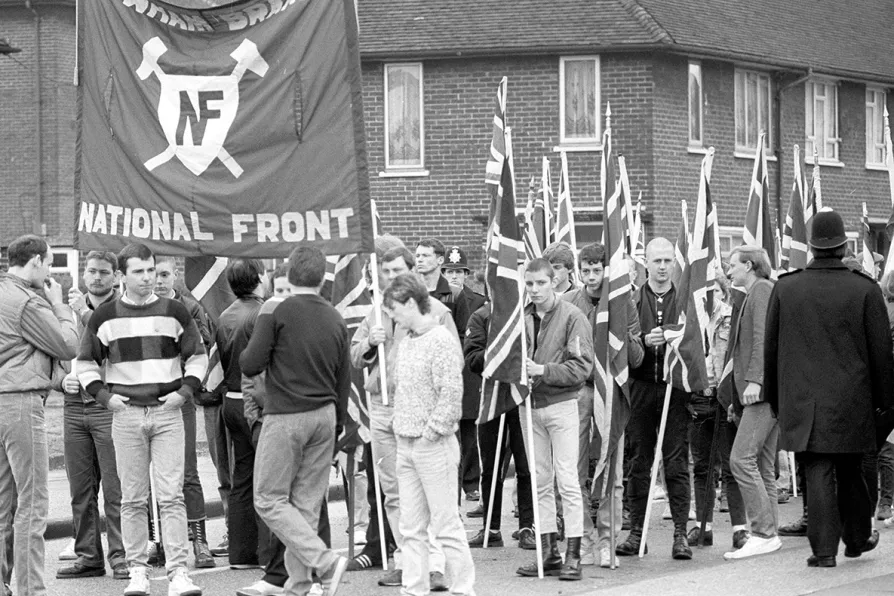Labour prospects in May elections may be irrevocably damaged by Birmingham Council’s costly refusal to settle the year-long dispute, warns STEVE WRIGHT

 Violent movements like the NF, pictured here in the 1980s, rely on racist sentiments being acceptable political talking points
Violent movements like the NF, pictured here in the 1980s, rely on racist sentiments being acceptable political talking points
THE disgraceful conditions at Manston in Kent provide a focus to 40 years of Tory racism. With Suella Braverman as home secretary and a terrorist-style attack on a Dover immigration centre by an individual with far-right links, the relationship between institutional racism and street racism becomes clearer.
When Enoch Powell made his “rivers of blood” speech in 1968, he was a senior Tory MP who found himself with no future in the party. This was the tail end of a period when the government was welcoming migrants to fill mostly badly paid gaps in the labour force.
After the oil-focused economic crisis of 1973, matters began to change. The racism inherent in much Tory politics began to be more openly displayed.

Once again Tower Hamlets is being targeted by anti-Islam campaigners, this time a revamped and radicalised version of Ukip — the far-right event is now banned by the police, but we’ll be assembling this Saturday to make sure they stay away, says JAYDEE SEAFORTH

TONY CONWAY assesses the lessons of the 1930s and looks at what is similar, and what is different, about the rise of the far right today












